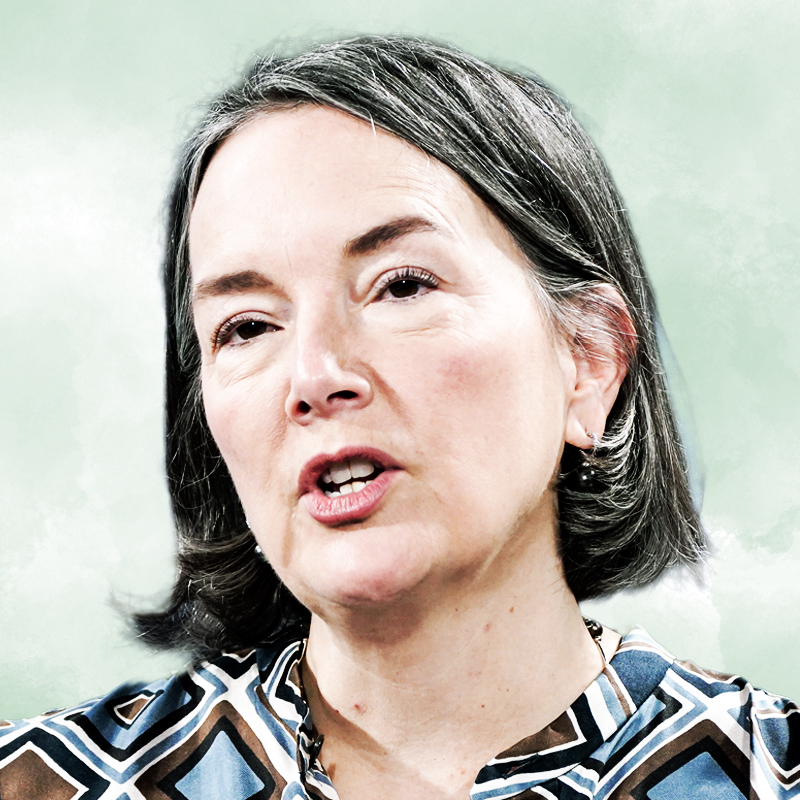Kathleen McLaughlin is the executive vice president and chief sustainability officer of Walmart. Under her leadership, Walmart launched Project Gigaton in 2017 which aims to reduce or avoid 1 billion metric tons of greenhouse-gas emissions from product supply chains by 2030—one of the world’s largest and most comprehensive private sector supplier decarbonization initiatives. As of 2022, Walmart was more than 75% toward meeting this goal.
What is the single most important action you think the public, or a specific company or government, needs to take in the next year to advance the climate agenda?
Immediate and sustained action on the biggest concentrations of emissions under your control or influence. For government, that includes implementing policies to overcome technology hurdles or infrastructure barriers. For companies, that includes business model innovation and engaging suppliers and customers to influence value chain emissions. For example, Walmart has reduced operational emissions by 23.2% as of CY2021 with a target to achieve zero emissions by 2040 through large scale onsite generation, offsite procurement, green transportation, national EV charging network, and refrigeration. We have engaged over 5,000 suppliers through Project Gigaton (energy, regenerative agriculture, waste, etc.), reporting 750 million metric tons of emissions reduced or avoided to-date.
What sustainability effort do you hope will gain popularity with the general public this year, and why?
Public engagement on the difference individuals can make on climate and nature. A recent study of U.S. households shows how individual choices regarding transportation, household energy use, meal planning, etc. contribute to over 80% of U.S. annual emissions*. Increasingly, people are aware of how their choices can contribute toward a more sustainable future. One of our goals at Walmart is to make the everyday, affordable choice also the more sustainable choice for the customer, enabled by [an] assortment [of] innovation through supplier engagement such as efforts to transition to renewable energy, adopting regenerative agriculture practices, enabling more sustainable fisheries practices and certifications, redesigning packaging, etc.
What’s the most important climate legislation that could pass in the next year?
The top priority should be implementing existing legislation to overcome technology hurdles and infrastructure barriers to scaling the energy transformation in a way that supports those most vulnerable to change. I am also excited by public-private partnerships to conserve critical landscapes while supporting local economic growth and access to recreation. For example, Walmart collaborates with suppliers and NGOs to help support cattle ranchers in adopting grazing practices that also restore prairie grasslands, while our Acres for America program with the National Fish and Wildlife Foundation has helped protect two million acres to-date in 42 states, the District of Columbia, and Puerto Rico.
- What Student Photojournalists Saw at the Campus Protests
- How Far Trump Would Go
- Why Maternity Care Is Underpaid
- Saving Seconds Is Better Than Hours
- Why Your Breakfast Should Start with a Vegetable
- Welcome to the Golden Age of Ryan Gosling
- The 100 Most Influential People of 2024
- Want Weekly Recs on What to Watch, Read, and More? Sign Up for Worth Your Time
